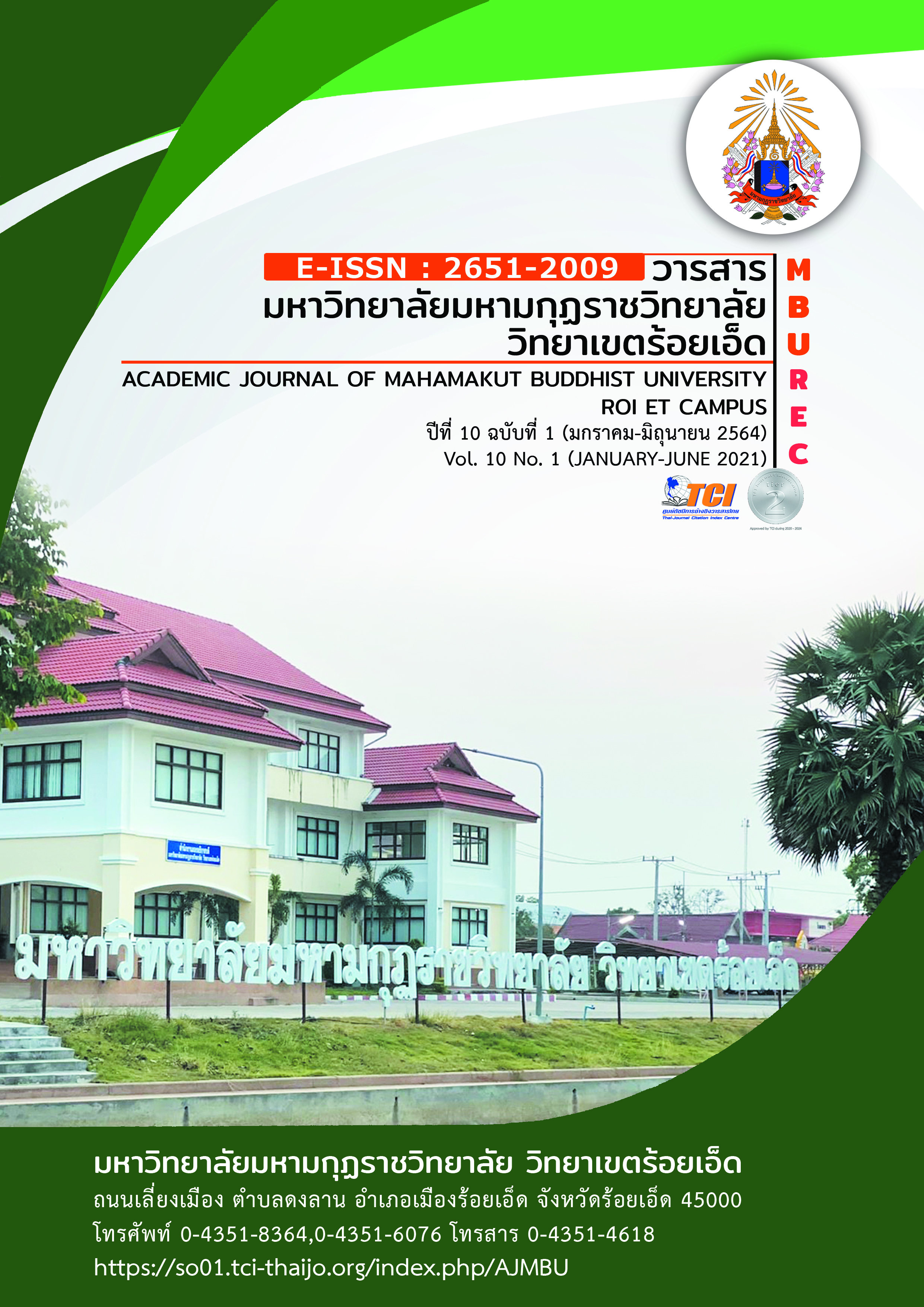The Development of Civil Rights of the Former Chinese Nationalist Troops (Kuo Min Tang) and the Former Communist Party of Malaya
Main Article Content
Abstract
The objective of the research article were to investigate Thai government management towards a group of former Chinese soldiers (Kuomintang) and a group of former Malaya communist who had already immigrated to Thailand, leading to new status of both 2 groups and also to investigate acquisition of civil rights of both groups, given by Thai government from the past until nowaday. The data collecting was based on documentary research and in-depth interview with key informants. The study result showed that Thai government has implemented policies to tackle 2 important problems as follows: controlling and governing policy has mainly used for national security, primarily under military supervise and responsibility. National economic integration policy has also used by providing 15 rai of arable land for each family so as to empower occupational security of those groups. Meanwhile, in term of social and cultural aspect, Thai government has adopted not only Thainess assimilation integration policy in order that such groups could adjust easily to Thai society but also such groups were able to freely maintain their ethnic identity. Regarding to civil rights given to such groups after becoming a citizen of Thai state, acquisition was based on principle of the recognition and protection of citizens’ rights legislated in Constitution and International Law, including nationality rights, freedom of movement and residence movement, freedom of occupation, freedom of expression of ethnic identity and political rights. However, at present both groups are still facing national rights, freedom of careering and some political rights issues. This is because Thai government continues to restrict the scope of these rights to protect mainly national interest and national security.
Article Details
References
กาญจนะ ประกาศวุฒิสาร. (2546). ทหารจีนคณะชาติ(ก๊กมินตั๋ง) ตกค้างทางภาคเหนือในประเทศไทย. เชียงใหม่ : ห้างหุ้นส่วนจำกัดสยามรัตนพริ้นติ้ง.
กิตติ รัตนฉายา. (2538). ดับไฟใต้กับพรรคคอมมิวนิสต์มลายา. กรุงเทพมหานคร : สำนักพิมพ์ดวงแก้ว บริษัทสหธรรมิก จำกัด.
ชุติ งามอุรุเลิศ และรุ่ง ศรีสมวงษ์. (2562). มาตรการทางกฎหมายในการแก้ไขปัญหาการแปลงสัญชาติเป็นไทย : ศึกษากรณีคนไร้สัญชาติ. MFU Connexion Journal of Humanities and social Sciences. 8(1). 345-369.
ชัยโชค จุลศิริวงศ์. (2541). ปัญหาของชนกลุ่มน้อยสัญชาติพม่าและจีนฮ่อในประเทศไทย เอกสารการสอนชุดวิชาปัญหาการเมืองส่วนภูมิภาคและชนกลุ่มน้อยในหน่วยที่ 10. พิมพ์ครั้งที่ 11. นนทบุรี : สำนักพิมพ์มหาวิทยาลัยสุโขทัยธรรมาธิราช.
ธานินทร์ ผะเอม. (2527). นโยบายการแก้ปัญหาความมั่นคงในพื้นที่จังหวัดชายแดนใต้. วิทยานิพนธ์หลักสูตรรัฐศาสตรมหาบัณฑิต. คณะรัฐศาสตร์ : มหาวิทยาลัยธรรมศาสตร์.
ปิ่นธเนศ แก้วรุ่งฟ้า. (2556). ความคุ้มครองสิทธิและเสรีภาพของคนต่างด้าวตามรัฐธรรมนูญแห่งราชอาณาจักรไทย พุทธศักราช 2550 ศึกษากรณีสิทธิมนุษยชนกับสิทธิพลเมือง. วิทยานิพนธ์นิติศาสตรมหาบัณฑิต สาขาวิชานิติศาสตร์. คณะนิติศาสตร์ : จุฬาลงกรณ์มหาวิทยาลัย.
พันธุ์ทิพย์ กาญจนะจิตรา สายสุนทร. (2543). ปัญหาการยอมรับให้สัญชาติโดยการแปลงสัญชาติแก่คนต่างด้าว. ทุนอุดหนุนการวิจัยจากสถาบันไทยคดีศึกษา มหาวิทยาลัยธรรมศาสตร์.
สุภางค์ จันทวานิช. (2561). วิธีการวิจัยเชิงคุณภาพ. พิมพ์ครั้งที่ 24. กรุงเทพมหานคร : สำนักพิมพ์จุฬาลงกรณ์มหาวิทยาลัย.
อมรา พงศาพิชญ์ พลศักดิ์ จิรไกรศิริ และธเนศ วงศ์ยานนาวา. (2525). การศึกษาเปรียบเทียบผู้อพยพทางบกในค่ายอพยพคนลาว คนเขมร และคนเวียดนาม. ทุนอุดหนุนการวิจัยจากจุฬาลงกรณ์มหาวิทยาลัย.
Charoenwong, Kaemmanee. (2004). Evacuation of the Nationalist Chinese (Kuomintong/ KMT) Troops in Northern Thailand from the 1950s to Today. Retrieved 4 April 2020. จาก https://icu.repo.nii.ac.jp/index.php? action=pages_view_main&active_action=repository_view_main_item_snippet&pn=1&count=20&order=16&lang=japanese&creator=charoenwong+kaemmanee&page_id=13&block_id=28
Peng, Chin. (2003). My side of History. Singapore : Media Masters Pte Ltd.
Taylor, H. Robert. (1973). Foreign and Domestic Consequences of the KMT Invention in Burma. data paper : number 93 Southeast Asia Program Department of Asian Studies. New York : Cornell University.


